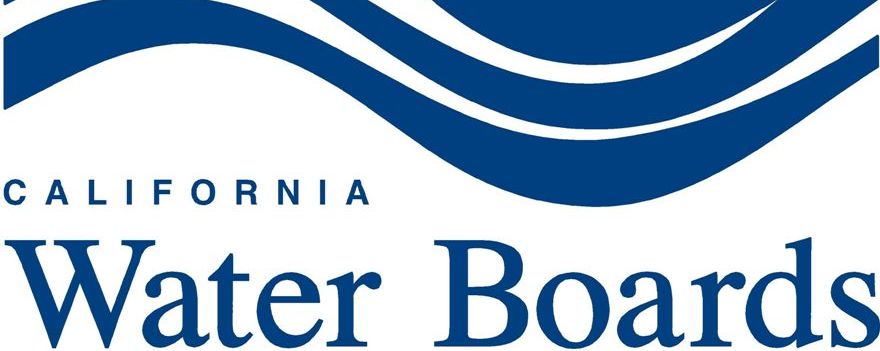From the State Water Resources Control Board:
“As California enters a fourth year of severe drought, the State Water Resources Control Board Tuesday adopted an expanded emergency regulation to safeguard the state’s remaining water supplies.
“We are experiencing the lowest snowpack and the driest January in recorded history, and communities around the state are already suffering severely from the prior three years of drought,” said State Water Board Chair Felicia Marcus. “If the drought continues through next winter and we do not conserve more — the consequences could be even more catastrophic than they already are. Today’s action is just a tune-up and a reminder to act, and we will consider more significant actions in the weeks to come.”
While communities and water suppliers have saved substantial amounts of water since the water conservation emergency regulation was first adopted in July 2014, there are many more opportunities for Californians to conserve in even greater amounts. The expanded emergency regulation captures some of these opportunities while continuing to give urban water suppliers flexibility to take actions that reflect their local conditions as long as they meet the minimum requirements. The State Water Board strongly encourages water suppliers to do much more than the minimum required by the regulation.
Today’s action incorporates lessons learned from implementation of the emergency regulation approved in 2014 and feedback from urban water suppliers and the public.
Prohibited Water Use
Under today’s action, the prohibitions on potable water use, first adopted in 2014, will continue, and new prohibitions will go into effect. All Californian’s are now prohibited from:
- washing down sidewalks and driveways;
- watering outdoor landscapes in a manner that causes excess runoff;
- washing a motor vehicle with a hose, unless the hose is fitted with a shut-off nozzle;
- operating a fountain or decorative water feature, unless the water is part of a recirculating system; and
- irrigating turf or ornamental landscapes during and 48 hours following measurable precipitation (new).
(New) Prohibitions affecting commercial businesses include:
- restaurants and other food service establishments can only serve water to customers on request; and
- operators of hotels and motels must provide guests with the option of choosing not to have towels and linens laundered daily and prominently display notice of this option.
Water Agency Requirements
The biggest change for urban water suppliers is the creation of a floor, or minimum standard, for outdoor irrigation restrictions. Urban water suppliers must now limit the number of days per week that customers can irrigate outdoors. The limit must either be specified in their drought contingency plans; or if their plan contains no specific limit, irrigation is limited to no more than two days per week.
Water agencies will also be required to notify customers when they are aware of leaks that are within the customer’s control. Finally, monthly reporting requirements will be expanded to include the limit on days for outdoor irrigation and a description of compliance and enforcement efforts.
For smaller water suppliers, the expanded regulation clarifies that if they choose to implement alternate mandatory measures, in lieu of limiting outdoor irrigation to twice a week, those measures should be designed to achieve a 20 percent reduction in water consumption.
Local agencies can fine property owners up to $500 a day for failure to implement conservation requirements and the State Water Board can issue cease and desist orders against water agencies that don’t impose mandatory conservation measures upon their retail customers. Water agencies that violate cease and desist orders are subject to civil liability of up to $10,000 a day.
“In a drought this severe, we need to think differently about our daily water use, and need to sacrifice emerald green lawns and other water use luxuries,” Marcus said. “At a time when hundreds of thousands of acres of farmland lie fallow, thousands are out of work, communities are running out of water, and fish and wildlife are devastated, and when locally stored urban water supplies are shrinking, we need to step up the pace of conservation. Water agencies should be motivating customers to take even more responsibility for the amount of water used in homes, backyards, businesses, parks and everywhere else.”
Following Board adoption, the regulation will be submitted to the Office of Administrative Law, which has 10 days to approve or deny the regulation. If approved by the Office of Administrative Law, the regulation will take effect immediately and remain in effect for 270 days from that date.
For more information, please visit the Emergency Water Conservation website.
Governor Brown has called on all Californians to reduce their water use by 20 percent and prevent water waste – visit SaveOurH2O.org and SaveOurWater.com to find out how everyone can do their part, and visit Drought.CA.Gov to learn more about how California is dealing with the effects of the drought.
——————————————–
Get the Notebook blog by email and you’ll always be one of the first to know!
- Sign up for daily emails and get all the Notebook’s aggregated and original water news content delivered to your email box by 9AM. Breaking news alerts like this one, too. Sign me up!
 Maven’s Notebook
Maven’s Notebook
constantly watching over the world of California water


